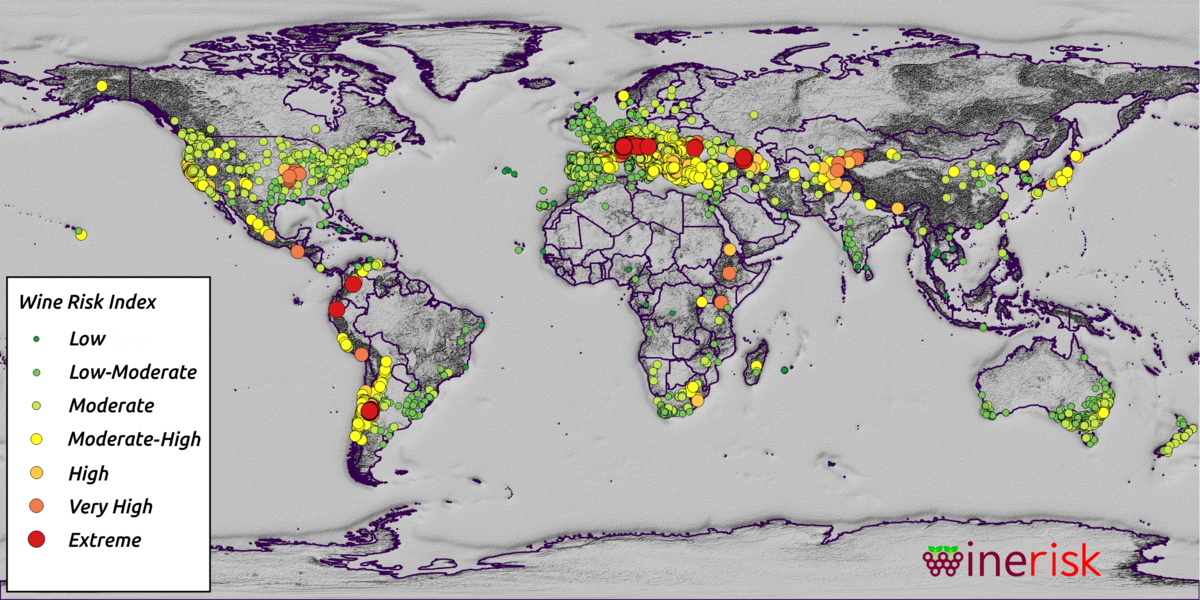Every year, worldwide wine industry suffers losses of more than ten billion US dollars from damaged assets, production losses, and lost profits due to extreme weather events and natural disasters. A multidisciplinary European-Australian team of researchers led by Dr. James Daniell of KIT examines the extent to which regions are affected by the risks and how climate change influences wine industry. At the 2017 Annual Conference of the European Geosciences Union (EGU) in Vienna, Daniell presented a global risk index for wine regions.
The wine regions of Mendoza and San Juan in Argentina are exposed to the highest risks due to extreme weather and natural hazards worldwide. These are the first results of a current worldwide study and the first release of the global risk index for wine regions. The study lead by Dr. James Daniell of the Geophysical Institute (GPI) and the Center for Disaster Management and Risk Reduction Technology (CEDIM) of KIT covers more than 7,500 wine regions in 131 countries. “Through detailed natural hazard analysis, research can help winemakers and governments alike to prepare adequately for the natural hazards that they face and to reduce losses,” Dr. James Daniell says. The risk analysis concerns events, such as frost, hail, floods, heat, drought, forest fires, and bushfires as well as earthquakes but also the effects of climate change. The scientists expect that many wineries will master climate changes by changing grape varieties or harvest times.
The EGU honored Daniell by granting him the “Early Career Scientist Award in Natural Hazards for 2017.” The “WineRisk” website summarizes the results of the study and presents solutions for wine regions.
More Information in the Press Release 051/2017.
or, 27.04.2017
Global Risk Index for Wine Regions
Winemakers Lose Billions of Dollars Every Year due to Natural Disasters - Scientists Develop Global Risk Index for Wine Regions – Climate Change Has Positive and Negative Effects on Wine Industry

